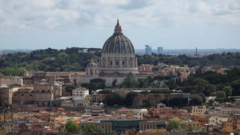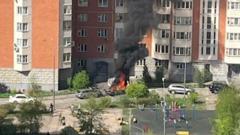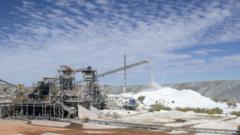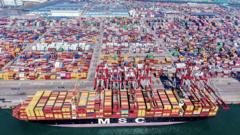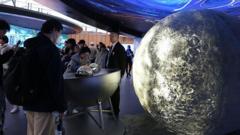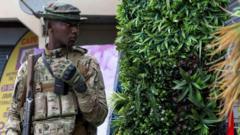In an exclusive interview, Felix Tshisekedi, the President of the Democratic Republic of Congo (DRC), discussed the ongoing conflict with Rwandan-backed armed groups that have taken significant portions of Congolese territory this year. Tshisekedi is poised to leverage this crisis by proposing a stake in his country’s rich mineral resources to the United States and Europe, moving to counteract the extensive influence of China in the region.
### President Tshisekedi's Stance: Minerals Deal with the West Amid Rwandan Offensive

### President Tshisekedi's Stance: Minerals Deal with the West Amid Rwandan Offensive
Amidst territorial losses to Rwandan-backed rebels, DRC’s president seeks Western investments to bolster national security and economic stability.
The DRC is renowned for its vast wealth of natural resources, crucial for global technologies, especially in the production of coltan and cobalt. The president expressed a sentiment of urgency that mirrors the geopolitical dynamics seen in Ukraine, positioning the ongoing conflict not just as a regional crisis but as a matter for international security. By enticing Western powers with potential investments, Tshisekedi hopes to pressure Rwanda, which he accuses of supporting illegal mineral extraction operations.
Tshisekedi criticized recent agreements between the European Union and Rwanda, which he claims further enable the exploitation of DRC’s natural resources. He described the EU’s negotiations, facilitating access to vital minerals like tin, tungsten, and gold, as scandalous, asserting that they reflect complicity in the asset looting of his country.
With more than half of the world's cobalt reserves and significant deposits of coltan found in the DRC, Tshisekedi’s calls for investment highlight Africa’s growing importance in the global resource market. In facing these challenges, he aims to reclaim the narrative around Congolese resources and secure partnerships that promise to provide more than mere economic assistance but a framework of security and collaboration against external aggressions.
The DRC's future, shaped by its rich mineral wealth, remains closely tied to how this new strategy is received internationally.
Tshisekedi criticized recent agreements between the European Union and Rwanda, which he claims further enable the exploitation of DRC’s natural resources. He described the EU’s negotiations, facilitating access to vital minerals like tin, tungsten, and gold, as scandalous, asserting that they reflect complicity in the asset looting of his country.
With more than half of the world's cobalt reserves and significant deposits of coltan found in the DRC, Tshisekedi’s calls for investment highlight Africa’s growing importance in the global resource market. In facing these challenges, he aims to reclaim the narrative around Congolese resources and secure partnerships that promise to provide more than mere economic assistance but a framework of security and collaboration against external aggressions.
The DRC's future, shaped by its rich mineral wealth, remains closely tied to how this new strategy is received internationally.



